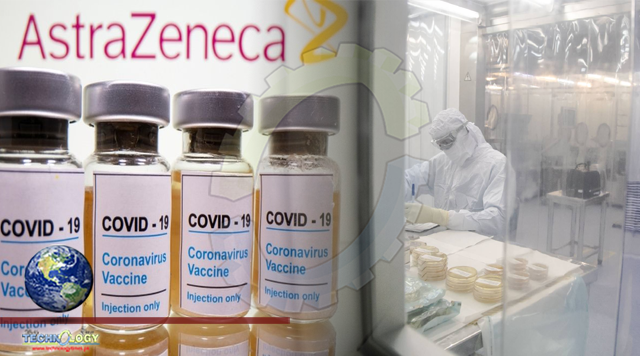AstraZeneca PLC continues to discuss the cause of rare blood clots with regulators and scientists after German researchers said they discovered the link to its COVID-19 vaccines.

The U.K. pharma company said the theory put forward by the Goethe University laboratory in Frankfurt on Wednesday is one of many that AstraZeneca scientists are investigating.
“We are continuing to work with regulators, recommending bodies and the scientific community around the world to understand more about the epidemiology and the possible mechanisms behind these extremely rare events,” a company spokeswoman said.
The theory set out in a preprint by the lab, headed by Professor Rolf Marschalek, suggests that the adenovirus vectors can deliver the DNA gene sequencing into the nucleus, not the fluid found inside the cell where proteins are usually produced.
Parts of the resulting spike protein split inside the nucleus, according to the theory, producing mutant versions that are secreted into the body and trigger blood clots in very rare events.
“The data certainly highlights that production of this truncated spike may well occur, but it stops short of providing a concrete link with promotion of blood clotting,” said Jonathan Ball, a molecular virologist at the University of Nottingham, about the Goethe research. “Nevertheless, it is certainly something worth investigating further.”
The AstraZeneca vaccine, which uses a design formulated by Vaccitech PLC scientists at the University of Oxford, has come under scrutiny around the world after reports of cerebral venous sinus thrombosis in some people who received it. Similar blood clot reports have been identified in recipients of Johnson & Johnson’s vaccine, which uses a similar design.
The Financial Times reported on Wednesday that Johnson & Johnson had spoken to the lab about the research.
“We are supporting continued research and analysis of this rare event as we work with medical experts and global health authorities,” J&J’s Janssen Pharmaceuticals said in an emailed statement. “We look forward to reviewing and sharing data as it becomes available, and, currently, we believe it is too soon to draw conclusions.”
The Goethe data conflicts with University of Bristol research from October that said AstraZeneca’s vaccine performed as expected.
Marschalek’s team noted that the type of vaccine developed by Pfizer Inc.-BioNTech SE and Moderna Inc., which uses mRNA technology, only delivers the genetic information to the cell fluid.
“All mRNA-based vaccines should represent safe products,” the Goethe University preprint said.
Originally published at The japan times